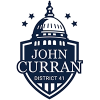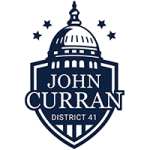Governor’s Office Daily COVID-19 Q & A
May 1, 2020
Liquor
Q: Will there be an extension of the liquor license renewal date?
A: Yes. Due to the hardships on liquor license holders as a result of the COVID-19 pandemic, all licenses expiring on March 31, 2020, April 30, 2020, May 31, 2020, and June 30, 2020, are extended until July 31, 2020.
Unless otherwise directed, all license holders with March, April, May, and June expiration dates will be required to renew licenses no later than July 31, 2020. Late fees will not be assessed for license holders with a March 31, 2020, April 30, 2020, May 31, 2020, and June 30, 2020, expiration date as long as the license is renewed on or before July 31, 2020.
For more information review the Illinois Liquor Control Commission notice here https://www2.illinois.gov/ilcc/News/SiteAssets/Pages/COVID/COVID19.renewal.extension%20%28May%201%202020%29.pdf.
Medical Equipment
Q: What are the two facilities the state is using to sterilize N95 masks? Are these facilities using the same method that Medline is currently attempting to get FDA approval to use?
A: The only mask decontamination system that Illinois Emergency Management Agency (IEMA) is currently partnering with is the Battelle CCDS Critical Care Decontamination System located at Cardinal Health in Waukegan. The method being used to decontaminate the masks is vapor phase hydrogen peroxide. Due to the method, only sturdier masks (N95s) are capable of being used following a sterilization.
Q: How does the state account for the alleged 10-day burn rate for sterilized N95 masks? Are sterilized masks omitted from the burn rate, or are they counted in the burn rate and then counted as new inventory after sterilization?
A: IEMA did not account for sterilized N95 masks in the 10-day burn rates; the focus was on hospitals, long term care facilities, state agencies and law enforcement. Of those entities, hospitals have the highest N95 burn rate due to the volume of care provided at those settings and IEMA hopes the Battelle decontamination process will adjust that number downward; however, the agency is awaiting additional data before it can report out.
Higher Ed
Q: Will students continue to receive resources through the Illinois Student Assistance Commission (ISAC)?
A: ISAC continues to provide college-going and financial aid resources and services during the coronavirus outbreak https://www.isac.org/covid-19/. Although in-person workshops and presentations have been suspended, the Illinois Student Assistance Corps (ISACorps) remains available by phone and email to help students and families apply for financial aid, compare award letters, and explore college and career options. Families can look up their local Corps members by zip code and contact them directly for this free, one-on-one assistance: https://studentportal.isac.org/isacorps.
Q: Will ISAC continue its ISACorps programs for college recruitments?
A: Yes. ISAC is also recruiting recent (and soon-to-be) college graduates to become new ISACorps members and would appreciate your help in sharing this opportunity with Illinois’ youth. Placements are in all parts of the state, and ISAC strives to recruit from all regions. For the posting, see https://www.isac.org/jointhecorps.
COVID-19 Relief Fund
Q: Is there a way to apply for grants from the COVID-19 relief Fund.
A: The Illinois COVID-19 Response Fund was established in late March, to provide financial assistance to nonprofit organizations and community foundations across the state. Nonprofits and foundations will use the funding to assist local communities, families and individuals during this difficult time. To learn more about the statewide response fund and how to be considered for funding opportunities, https://www.ilcovidresponsefund.org/.
If you are interested in learning more about the Chicago Community COVID-19 Response Fund, https://www.chicagocovid19responsefund.org/.
Real Estate
Q: Are real estate closings permitted during the Stay-At-Home Order?
A: Yes, although consumers are strongly encouraged to amend their real estate contracts to change the closing date to a date after May 29, 2020, recognizing the effective period of the new Stay-at-Home Executive Order 2020-32. Given that unique sets of individual circumstances could make a real estate closing essential during the current period of the Executive Orders, closings are permitted to occur during this time frame. Real estate brokerage professionals must continue to act in accordance with the provisions of the Real Estate License Act of 2000 and may not unilaterally make changes to the contract between buyers and sellers. Any change in closing dates must be agreed to by the parties to the transaction and properly documented.
Real estate closings are permitted to occur either through remote means or with all applicable social distancing requirements put in place for any in-person transaction.
Revenue Q: Given the drastic reduction in sales tax revenues anticipated from COVID-19 Stay-at-Home actions, is there an acceleration of sales tax payments to the municipalities? A: Sales tax distributions to local government occur about 40 days after receipt by the Department of Revenue (DOR). The reason for that delay is because DOR has to determine the distribution that each municipality is supposed to receive. The retailer simply files a return with total sales tax remittance. DOR must determine which municipality should get the local portion of the retailer’s tax payment.
Re-opening
Q: From a small business perspective, what considerations are being made to modify the approach to treat areas of the state outside of Chicago differently and allow for a more return to “normal” with distancing, masks, etc.?
A: The Governor will be considering a reopening approach that looks at different parts of the state based on public health indicators.

